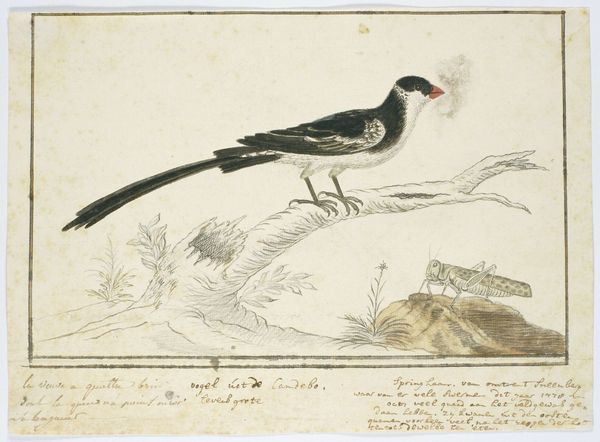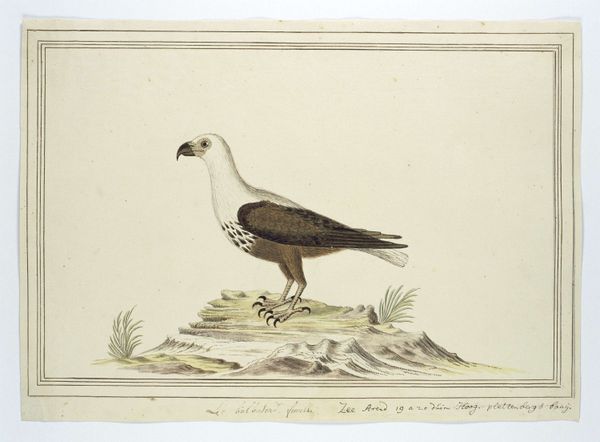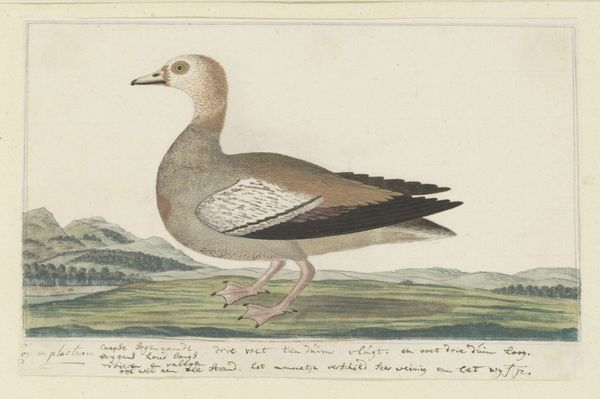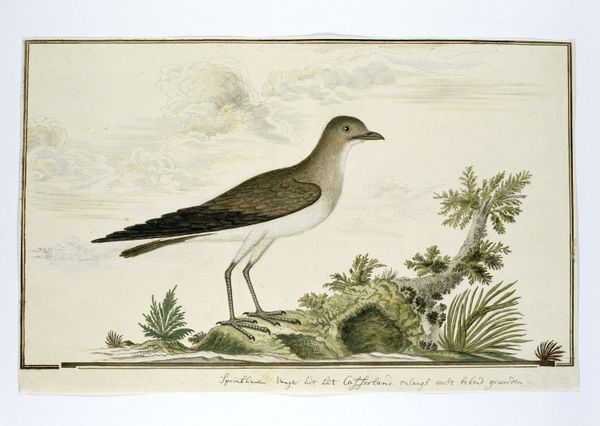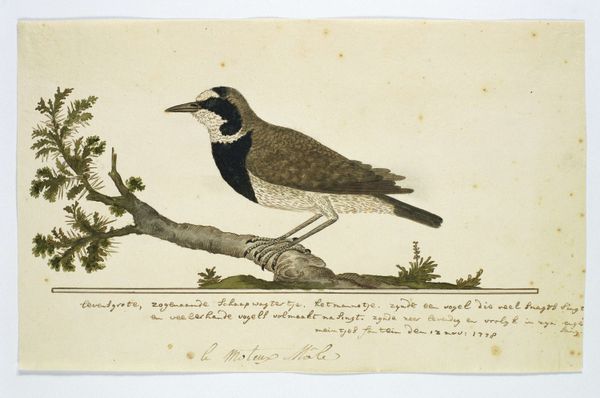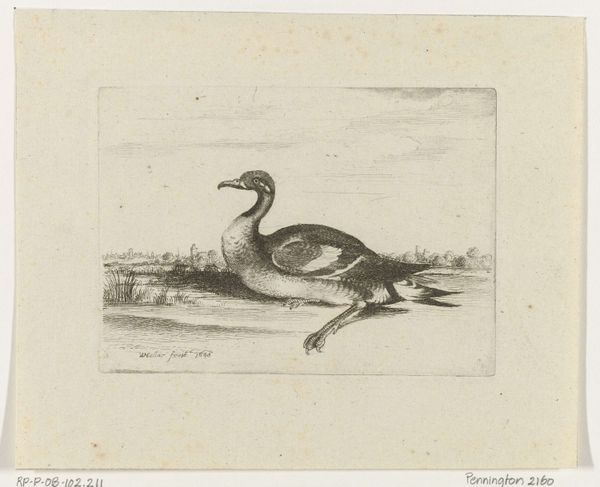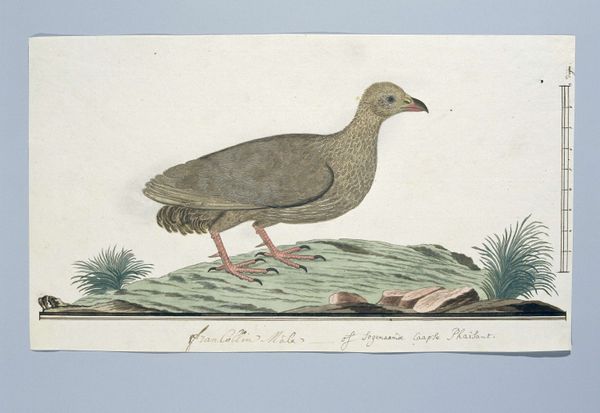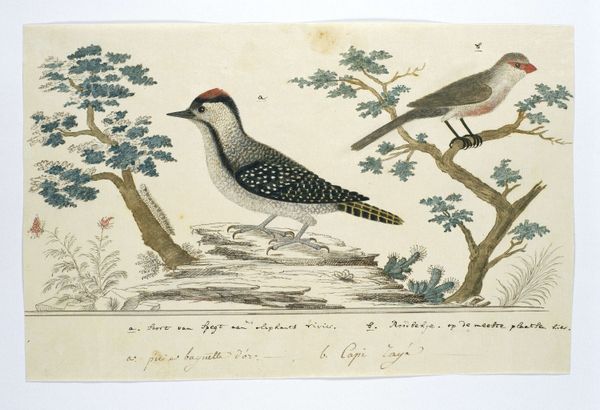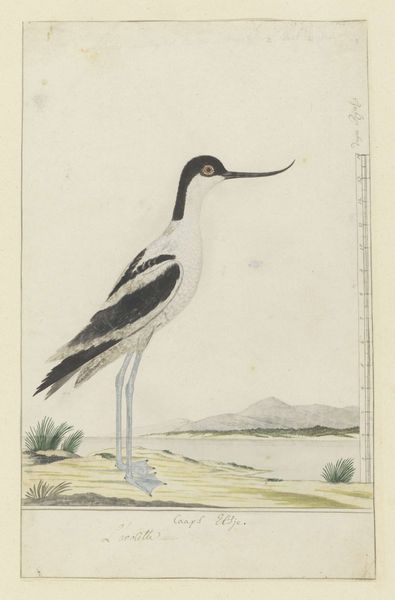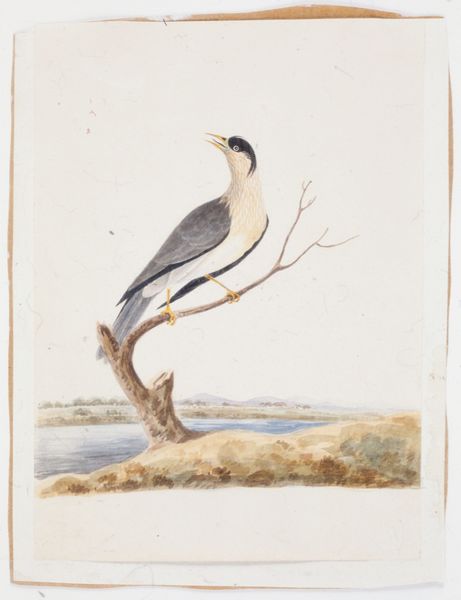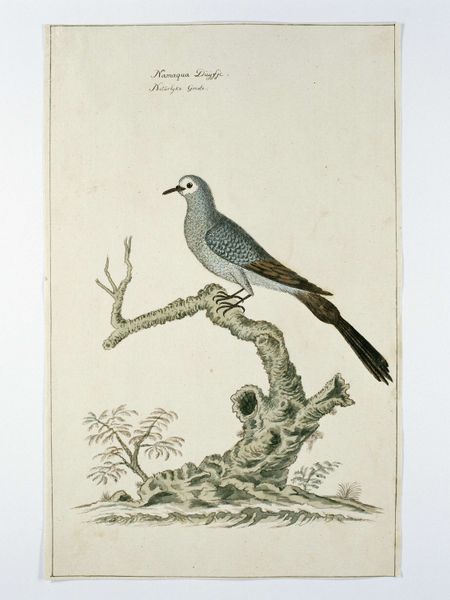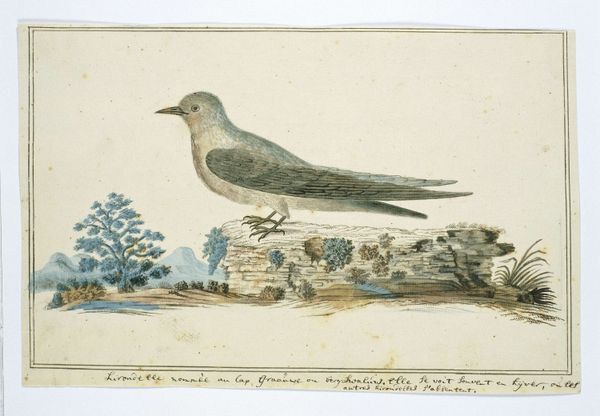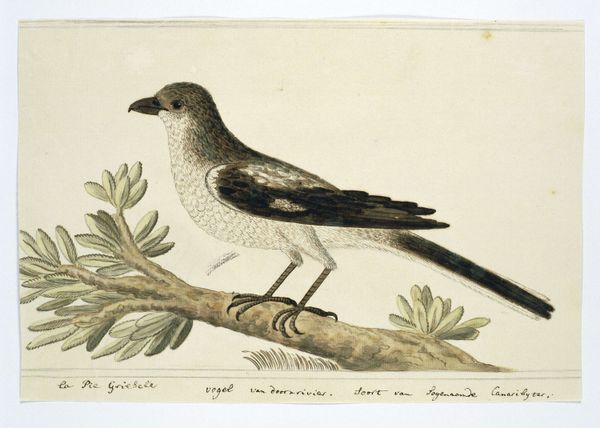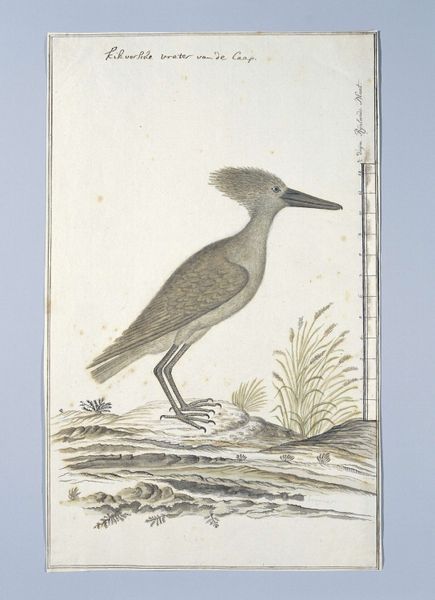
drawing, paper, watercolor, pencil
#
portrait
#
drawing
#
pencil sketch
#
landscape
#
paper
#
watercolor
#
pencil
#
watercolour illustration
#
naturalism
#
realism
Dimensions: height 660 mm, width 480 mm, height 222 mm, width 316 mm, height 171 mm, width 308 mm
Copyright: Rijks Museum: Open Domain
Robert Jacob Gordon created this watercolor drawing of a Charadrius tricollaris, or Three-banded sandplover. Gordon, a Dutch explorer and military officer in the service of the Dutch East India Company, made the drawing at the Cape of Good Hope. The work reflects the complicated history of colonialism and scientific exploration. Gordon’s detailed rendering of the bird, a product of his scientific curiosity, is intertwined with the colonial project. He was mapping and documenting the natural resources of the land for the Dutch East India Company. The inscription "petit, pluviur" at the bottom of the page is a tender reminder of the artist’s emotional connection to the natural world. By understanding the historical context of the work, we can have a discussion about identity, exploration, and the complex relationship between science and colonialism. The drawing serves as a window into the past, inviting us to reflect on the legacy of exploration and its ongoing impact on the world.
Comments
No comments
Be the first to comment and join the conversation on the ultimate creative platform.
